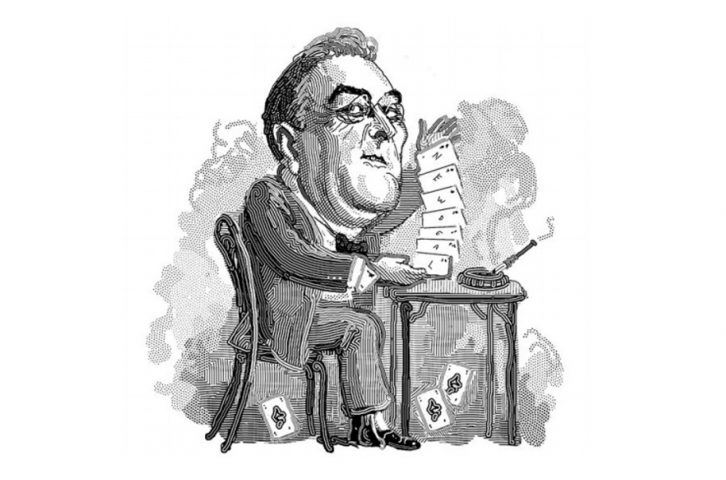Dan Rather, the former CBS news anchorman, called the other day for President Barack Obama to appoint “a White House commission on public media” to study ways to save journalists’ jobs and keep news organizations, especially newspapers, alive. “A truly free and independent press,” he told the Aspen Daily News, “is the red beating heart of democracy and freedom.”
Those of us who grew up watching him on TV know that Rather’s red beating heart bleeds blue. His liberal politics were rarely off-screen, and he left his correspondent’s job at 60 Minutes (the matter is being litigated) amid controversy over fabricated documents showing that the young George W. Bush had allegedly received special treatment in the Texas Air National Guard.
Rather went on to say, according to the Aspen paper’s summary, that “the free press, as established by the First Amendment to the Constitution, ought to operate as a public trust, not solely as a money-making endeavor….”
So let’s see. Rather contends that the First Amendment, the same one establishing “a truly free and independent press”—independent of government, that is—now is an excuse for turning the press into a “public trust,” presumably with tax and regulatory favors to allow the media to thrive. Granted, he isn’t calling directly for a government bailout; he’s calling for a commission to lower resistance to the idea of a bailout by studying ways to do it.
On that principle, I look forward to his proposal for a White House commission to study the alarming drop in support for mainstream Protestant churches. The First Amendment guarantees them freedom, but people aren’t filling the pews anymore. What will happen to the red beating heart of American religion?
No one disputes that American newspapers are in trouble; they’re dropping like flies. The 150-year-old Rocky Mountain News shut down almost six months ago, the daily Christian Science Monitor publishes only online now, and the New York Times, the gray lady herself, was forced to borrow $250 million from a Mexican financier at 14% interest. In the old days, a lady didn’t do that kind of thing.
What’s killing newspapers? The principal suspect is the internet, which not only scoops print journalism by shortening the news cycle but also steals print’s thunder by circulating print articles, for free, before the paper is even out. Newspaper ad revenues have fallen precipitously because it’s easier, cheaper, and often more effective to advertise on the web.
* * *
Permit me, however, to add another factor. Many American newspapers in the course of the last century developed a stultifying self-importance. Hegel, who as far as I know is the first philosopher to edit a newspaper, was present at this attitude’s birth. In his diary he wrote: “Reading the morning newspaper is the realist’s morning prayer.” To Hegel, in other words, the daily paper represents the ascent from superstitious faith in God to realistic faith in science and history. The newspaper’s account of world events is the first draft of true scripture, showing God’s will at work turning Earth into rational heaven.
But have you tried reading the heavenly editorial pages of, oh, the San Francisco Chronicle or the New York Times? It’s impossible, at least if you value lively writing, humor, and sharp thinking. Everything is ex cathedra, written with a drear infallibility far surpassing any pope’s. A kindred smugness—Rather is its public face—often grips the news pages, leavened only by the irony oozing from the lifestyle and entertainment reporting. And how few papers retain any sense of local character, most of which has been sacrificed to Hegel’s God of universal wisdom, known in the business as the journalism schools and wire services. The only sections responding to the natural limits of human affection and knowledge are the business and sports pages. The latter are superior because they invite readers to share in the athletes’ beautiful, unironic, and unashamedly partisan (Go Dodgers!) quest for excellence.
The red beating heart of American democracy will continue to beat, without a government pacemaker, in the newer media and livelier newspapers—those curious about the world, fond of the best pens, and honest about their own loyalties. For the rest of the media herd now threatened with extinction, their best hope is to be included in your morning prayers.



